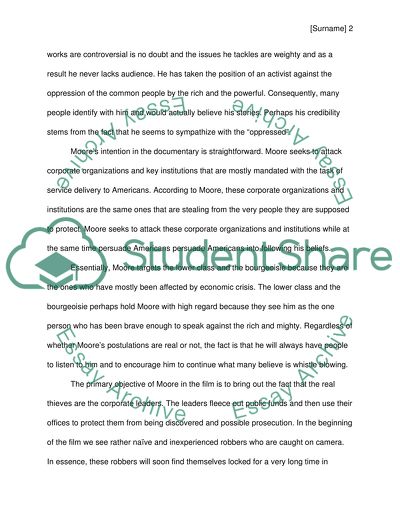Cite this document
(“Rhetorical Analysis: Capitalism: A Love Story Essay”, n.d.)
Retrieved de https://studentshare.org/english/1449884-rhetorical-analysis-capitalism-a-love-story
Retrieved de https://studentshare.org/english/1449884-rhetorical-analysis-capitalism-a-love-story
(Rhetorical Analysis: Capitalism: A Love Story Essay)
https://studentshare.org/english/1449884-rhetorical-analysis-capitalism-a-love-story.
https://studentshare.org/english/1449884-rhetorical-analysis-capitalism-a-love-story.
“Rhetorical Analysis: Capitalism: A Love Story Essay”, n.d. https://studentshare.org/english/1449884-rhetorical-analysis-capitalism-a-love-story.


